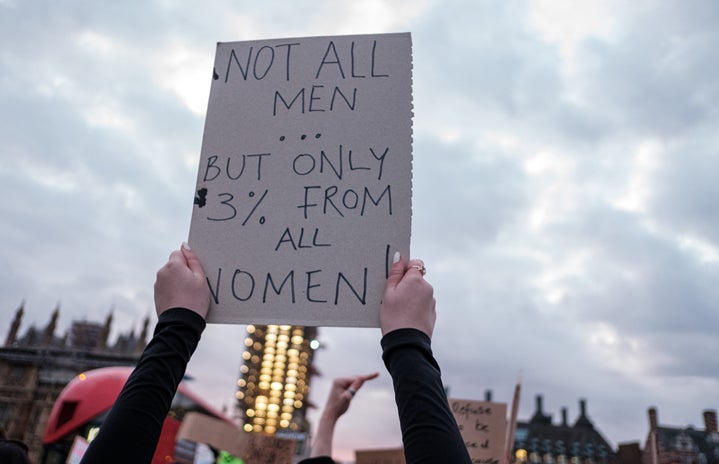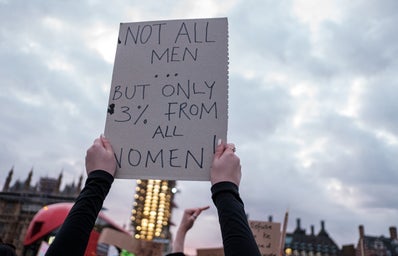Just two weeks into the New Year, another young woman has found herself the victim of a violent murder. The tragic killing of 23-year old Ashling Murphy in Tullamore, Co.Offaly, has sparked great anger around the world. From Ireland to Australia, thousands have gathered for vigils in Ashling’s memory.
However, although there is vast international support, the tragic event has unfortunately sparked some negative responses. Following the event, many men decided to take these negative responses to Twitter, with #NotAllMen appearing as a trending hashtag for what seems like the hundredth time this year. In March 2021, the hashtag emerged on Twitter’s trending page in response to the killing of Sarah Everard in 2021.
In light of this pattern, we must discuss why the reappearance of these reactions do more harm than good when it comes to combatting the phenomenon of male violence against women. These conversations are significant between men and women, especially those in heterosexual relationships. If you are a woman finding yourself in a situation where your partner, supports the #NotAllMen narrative, it may be helpful to present them with your perspective of the situation or even send them this article! If you are the man on the receiving end, this article may be a useful tool to help you better understand your S/O’s perspective. Here are some reasons why the “Not All Men” approach to male violence against women is harmful in relationships.
What is #NotAllMen?
To understand its harms, we must firstly look at what #NotAllMen means. Caroline Dadas summarises the meaning behind the hashtag stating that it,
Understanding the Harms of the Narrative
Of course, we can all recognise that not all men commit violent crimes against women, especially as horrific as the ones committed against Ashling Murphy or Sarah Everard. However, we cannot deny that men hold the power to contribute to the male culture that mistreats women which Dadas references in a number of different ways. Simply by tweeting, retweeting or liking posts related to #NotAllMen you contribute to that culture. The hashtag is not merely a declaration of innocence on the part of men. It reflects an attempt to minimise women’s concerns surrounding gender-based violence, and replace it with the idea that such violence only concerns the minority of women and men.
In reality, this is not the case. Recalling a UK study conducted in 2021, it was found that 97% of women had experienced sexual harassment. This statistic shows that despite the fact that it may not be all men who commit these crimes, it is almost all women who suffer from them.
Discussing the fact that the #NotAllMen narrative belittles women’s concerns with your S/O is crucial in order for them to truly understand the fears instilled within many women due to male violence. Even for women who do not experience violence or harassment, the fear remains part of their daily lives because male violence against women is a phenomenon embedded in our society. As a result, it is important for men in heterosexual relationships to understand their partner’s fears surrounding this issue. It is important that men share some sort of appreciation for their partner’s perspective and their daily struggles in order for women to feel as though their experiences are being heard and believed, especially by someone that they are in a loving relationship with.
Using #NotAllMen in situations of male violence against women is a defensive response. When discussing gender-based violence with your S/O, defensive responses are harmful as they suggest that you are not listening to the other person. You are too busy thinking of ways to defend yourself, instead of making sure your partner feels safe to discuss her struggles with you. If your S/O is sharing a traumatic experience with you, it is important that she feels that she can do so comfortably. A defensive response is demeaning and may feel like an attack to your S/O, making them feel as though they cannot rely on you to validate their emotions. Discussing both perspectives without getting defensive shows you S/O that they can count on you.
Of course, we are not saying it is women’s responsibility to educate their S/O or men in general on these issues. However, in the event that you want to have these conversations with your partner, be that because you are passionate about the issue, you want to call out behaviour that you believe is disrespectful, or even in the event that they approach you with any questions on this topic, it is important to explain to your S/O how harmful this narrative is and to show that it is not helpful for either side.


